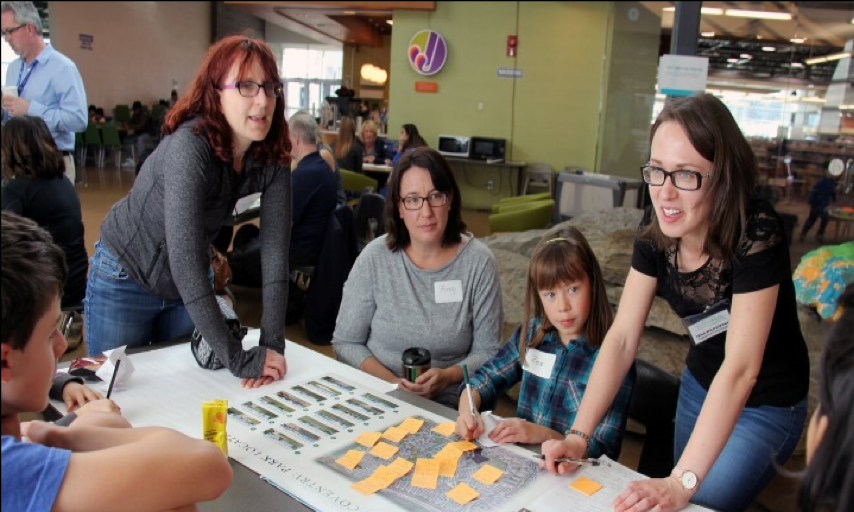The video System Thinking and Evaluation, by Kylie Hutchinson, Chris Lovato and Bev Parsons is an excellent introduction to evaluating systems change. It describes how an evaluation of a hypothetical initiative to improve nutrition in a community must both ‘zoom in’ to explore the programmatic effects of the effort (e.g., improved health of program participants) and ‘zoom out’ to assess influence and change on factors in the larger systems that affect their individual health (e.g., urban design which affects levels of physical activity, the quality of industrial food production, the culture of portion sizes). The video also reminds us that deep and durable progress on complex issues depends on our ability to reshape the deeper systems that contribute to those problems in the first place.
Read More







